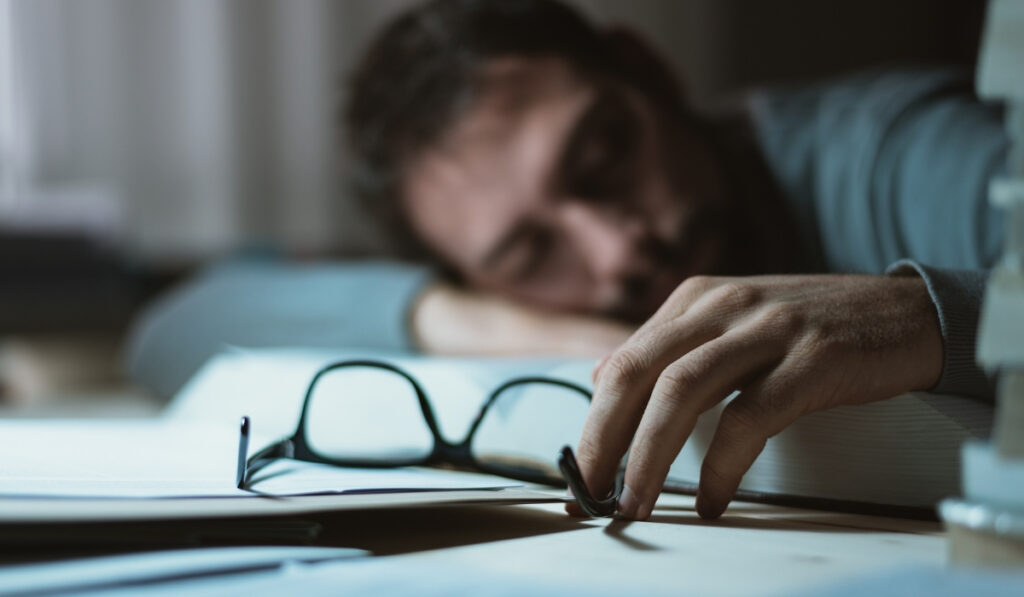Sleep is essential for good health, mentally and physically. Unfortunately, a significant part of the world population does not think about the consequences of sleep deprivation on their mental health.
They’re so busy with their lifestyle that they forget to take some time out for rest. As a result, individuals don’t understand the severe effects of an irregular sleeping schedule on their mental health.
Nowadays, individuals don’t have the opportunity to focus on their psychological wellness, which is a significant motivation behind why insomnia and sleeping issues are more common than ever. The underlying phases of declining psychological wellbeing are difficult to notice. That is why people need to know the ill effects of lousy sleeping schedules on their mental and physical health.
We’ve managed to gather the required information to help you better understand how the relationship between sleep and mental health works.
Healthy Sleep Signifies Healthy Mind
Quality sleep furnishes a sense of personal satisfaction and security. It also helps us to recover from mental as well as physical exertion. Taking sleep into consideration for good mental health is significant yet disregarded most of the time.
Specialists propose that lack of sleep makes us more fractious, and we respond adversely to minor inconveniences and interferences. However, a review from the American Psychological Association additionally announced that grown-ups who dozed less than eight hours a night were bound to report indications of stress than the individuals who rested at least eight hours.
Lack of sleep not only makes you feel bad-tempered and irritable all the time, but it can have severe effects on your overall physical health too. It also exhibits connections to discouragement, tension, bipolar turmoil, and several other conditions. In addition, the absence of a proper sleeping schedule leads to coronary illness, type 2 diabetes, and depression.
There is a direct connection between sleep and emotional wellbeing. Due to this on-loop connection between your sleep patterns and mental health, keeping a good sleep schedule in check is crucial.
Sleep plays an indispensable part in the health and prosperity of an individual. Getting the appropriate amount of sleep at a regular time can help secure your psychological and physiological wellbeing.
How to treat your sleep deprivation?
You can treat your sleep-deprived ness by making some changes in your lifestyle, like opting for a bedtime routine that may help you overcome the lack of sleep and give you a decent night’s rest.
This can also incorporate cleaning up, perusing, or pondering. Allow your psyche to float calmly to rest. In any case, don’t eat an enormous supper not long before bed. It can make it challenging to rest.
Another progression that may assist you with getting a decent night’s rest is adhering to a predictable timetable. This implies that you head to sleep and awaken simultaneously consistently.
On the off chance that conceivable, awakening with the sun is a decent method to reset your body’s clock all the more normally. Likewise, keep your room at a moderate temperature. A room that is too hot or too cold can upset sleep.
If you’re experiencing difficulty resting, take a stab at accomplishing something different, like perusing a book for a couple of moments. The nervousness of not having the option to nod off can exacerbate rest for specific individuals.
It is extremely crucial to consult a doctor if you’re facing trouble sleeping even after trying everything. Sleep deprivation must never be ignored as the consequences of it may be very dangerous. A clinical specialist or therapist can survey the expected advantages and dangers of various medicines, including physician recommended medication.
Then, they can give customized care, remembering circumstances with numerous co-happening physical or psychological wellbeing issues.
Treatments for lack of sleep shift depend on how extreme it is.
Sometimes, your primary care physician may need you to attempt self-care strategies before going to medication. For example, your primary care physician may endorse resting pills. Yet, remember that they will, in general, function admirably following half a month.
They can disturb your rest. For more genuine sleep deprivation, your primary care physician may have you attempt light treatment. It can assist your body’s inner clock in rearranging and permitting you to rest all the more peacefully.
Relax!!!
Stress can influence our physical, mental, and emotional prosperity and how we respond or act, which ultimately leads to deprived sleep. Rehearsing ‘unwinding’ is fundamental to overseeing stress. It causes us to have a more settled and clearer mind, which helps positive reasoning, focus, memory, and dynamics.
Keeping your mind stress-free is crucial, especially nowadays when most people’s schedules are so hectic and tiring. Not paying attention to these small parts of your lifestyle can have numerous harmful effects on your overall wellbeing. That is why relaxing is so important.
Conclusion
To sum up, all the things stated above; we can say that sleep and mental health are like the tires of a bicycle; they both go hand in hand to keep each other and your overall health stable.
Hence, it is essential to pay the required attention to your sleeping patterns and mental wellbeing to avoid any health issues. However, neither of these two must be neglected as the results may lead to much bigger problems.
Treating your sleep issues early is essential for protecting both your physical and mental wellbeing. Your mind and body require proper rest and care, and you are the only one who can ensure both of these for yourself.
Addressing sleep issues from the get-go is imperative to help ensure your general wellbeing and health. Making life changes that advance great rest can help, yet converse with your primary care physician if your rest issues endure. So consider your health and stop ignoring the signals your body sends. Stay healthy mentally and physically.





